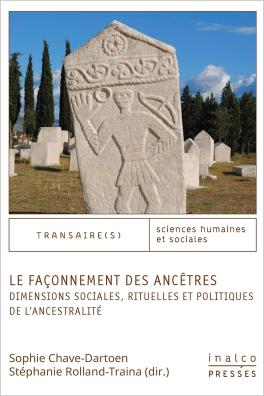
The Shaping of Ancestors
Social, Ritual and Political Dimensions of Ancestrality
30 €
Presentation
For human societies, renewal is an essential issue, beyond individual destinies and historic events. Continuities are therefore created in time (connections between past, present and future) in order to transmit the values that underpin the order of each community and the rules governing it. Continuities are also created in space, which is shaped by social perceptions and logics, as well as their principles and effects.
In this context, ancestrality is an almost universal means of organizing some or all of these continuities. Ethnographies of various human societies show that the deceased are perceived very differently depending on the culture: they are not always treated equally or with the same importance. The question the authors of this book wish to answer is thus not so much “what is an ancestor?” but “when, and how, is the relationship with ancestors important, signifying and, therefore, operational?”
Editors
Sophie Chave‑Dartoen, an anthropologist of Oceania and member of the Passages research unit (UMR CNRS 5319), teaches at the University of Bordeaux. She studies Wallis Island society (in Western Polynesia), particularly social organization, ritual systems and ceremonial circulations. Recently, she has focused on forms of categorization, semiotic systems and local theories of action.
Stéphanie Rolland‑Traina is a lecturer in social anthropology at the University of Bordeaux and a researcher in the Passages unit (UMR 5319). Her work focuses on daily life and, more specifically, the reconstruction of identities in the former Yugoslav space following successive political and state transitions.
321 pages
16 x 24 cm
Publication: 16/04/2019
ISBN: 9782858312962